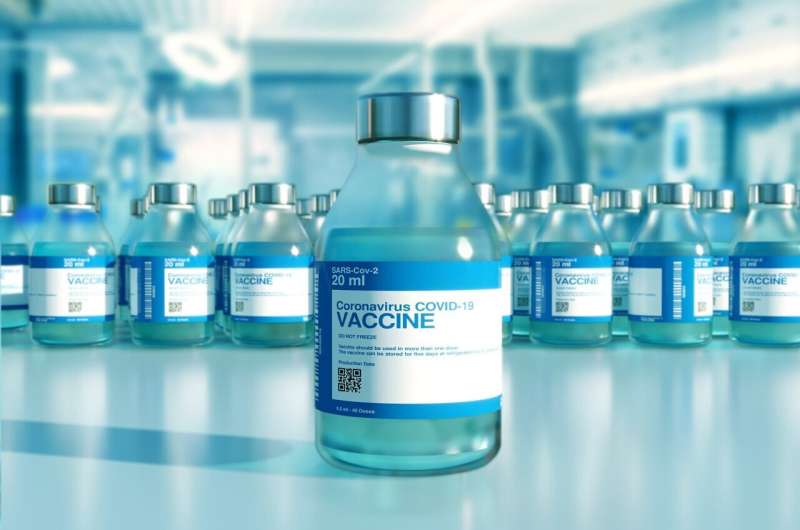Study suggests additional COVID-19 vaccine doses for immunocompromised patients

Additional doses of COVID-19 vaccine are recommended for immunocompromised patients, especially for organ transplant recipients who are least able to make antibodies to fight off coronavirus, say experts in The BMJ today.
The findings reinforce the importance of additional doses of COVID-19 vaccine to protect people with a weakened immune system.
It is already known that after vaccination, people with a weakened immune system (immunocompromised) are less able to make antibodies to fight off viruses, such as influenza, than people with a healthy immune system (immunocompetent). But less is known about the response to COVID-19 vaccines, particularly mRNA vaccines.
The process of making antibodies after infection or vaccination—priming the immune system to fight off a specific virus—is called seroconversion.
To address this knowledge gap, researchers in Singapore analyzed the results of 82 observational studies comparing the effectiveness of COVID-19 vaccines in immunocompromised and immunocompetent people.
Of these studies, 77 (94%) used mRNA vaccines, 16 (20%) viral vector vaccines, and 4 (5%) inactivated whole virus vaccines. A total of 63 studies were assessed to be at low risk of bias and 19 at moderate risk of bias.
After one COVID-19 vaccine dose, seroconversion was found to be reduced among immunocompromised groups, except people with HIV.
Seroconversion rates were about half as likely in patients with blood cancers, immune mediated inflammatory disorders (eg. rheumatoid arthritis and psoriasis) and solid (tumor) cancers compared with immunocompetent controls, whereas organ transplant recipients were 16 times less likely to seroconvert.
After a second dose, seroconversion was significantly increased in patients with blood cancers, immune mediated inflammatory disorders and solid cancers, but remained severely reduced in transplant recipients, with only a third achieving seroconversion.
Further review of 11 studies showed that a third dose of a COVID-19 mRNA vaccine was associated with seroconversion among vaccine non-responders with solid cancers, blood cancers, and immune mediated inflammatory disorders, although response was variable in transplant recipients and no published evidence was available on the effectiveness of a third dose in people with HIV.
Among the immunocompromised groups studied, antibody levels (titres) were also lower than in immunocompetent controls.
The researchers point to several limitations. For example, the included studies were observational and used different definitions of seroconversion. What's more, the researchers cannot rule out the possibility that other unmeasured factors, such as age and underlying conditions, might have affected their results.
Nevertheless, use of stringent study inclusion criteria together with rigorous and systematic evaluation of study quality suggests their conclusions are robust.
As such, they say their findings show that seroconversion rates and antibody titres after COVID-19 vaccines are significantly lower in immunocompromised patients, especially organ transplant recipients.
"Targeted interventions for immunocompromised patients, including a third dose, should be performed," they conclude.
More information: Efficacy of covid-19 vaccines in immunocompromised patients: systematic review and meta-analysis, The BMJ, DOI: 10.1136/bmj-2021-068632





















